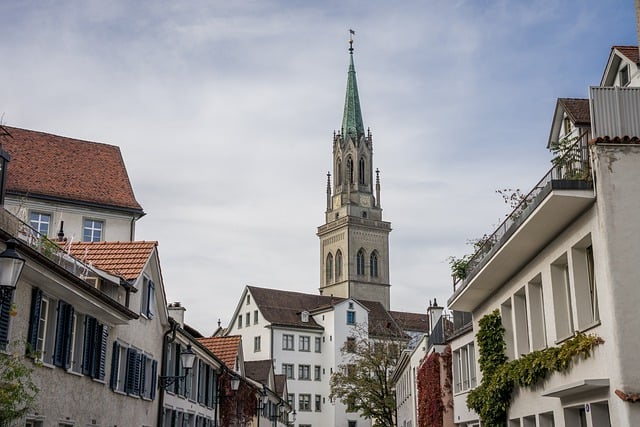Dutch Free Trade Zones: Benefits for Companies

The Netherlands is renowned for its strategic location, robust infrastructure, and business-friendly environment, making it a prime destination for international trade and investment. One of the key features that enhance its appeal is the presence of Free Trade Zones (FTZs). These zones offer numerous benefits to companies, including tax advantages, streamlined customs procedures, and enhanced logistics capabilities. This article explores the concept of Dutch Free Trade Zones, their benefits, and how companies can leverage them to optimize their operations.
1. What are Free Trade Zones?
Free Trade Zones (FTZs) are designated areas within a country where goods can be imported, stored, processed, and re-exported without being subject to the usual customs regulations and duties. These zones are designed to facilitate international trade and attract foreign investment by offering a more favorable business environment.
2. Key Free Trade Zones in the Netherlands
The Netherlands has several Free Trade Zones, with the most prominent ones located in and around major ports and airports. These include:
2.1. Port of Rotterdam
- Europe’s Largest Port: The Port of Rotterdam is the largest port in Europe and one of the busiest in the world. It offers extensive FTZ facilities, making it a hub for international trade.
- FTZ Services: The port provides services such as bonded warehousing, customs clearance, and logistics support, enabling companies to streamline their operations.
2.2. Amsterdam Schiphol Airport
- Strategic Air Hub: Amsterdam Schiphol Airport is one of Europe’s major air cargo hubs. Its FTZ facilities cater to businesses involved in air freight and logistics.
- Efficient Customs Procedures: The airport offers expedited customs procedures, reducing transit times and improving supply chain efficiency.
2.3. Venlo Greenport
- Agri-Food Hub: Located near the German border, Venlo Greenport specializes in the agri-food sector. Its FTZ facilities support the import, export, and processing of agricultural products.
- Sustainability Focus: The zone emphasizes sustainable practices, aligning with the Netherlands’ commitment to environmental responsibility.
3. Benefits of Dutch Free Trade Zones
3.1. Tax Advantages
- Deferred Customs Duties: Companies operating within FTZs can defer payment of customs duties and import taxes until the goods are moved out of the zone and into the domestic market.
- VAT Exemption: Goods stored in FTZs are exempt from Value Added Tax (VAT), reducing the financial burden on companies.
3.2. Streamlined Customs Procedures
- Expedited Clearance: FTZs offer simplified and expedited customs clearance processes, reducing delays and improving supply chain efficiency.
- Reduced Administrative Burden: Companies benefit from reduced paperwork and administrative requirements, making it easier to manage international trade operations.
3.3. Enhanced Logistics and Supply Chain Efficiency
- Bonded Warehousing: FTZs provide bonded warehousing facilities, allowing companies to store goods without paying customs duties until they are needed.
- Value-Added Services: Companies can perform value-added activities such as packaging, labeling, and assembly within FTZs, enhancing their operational flexibility.
3.4. Strategic Location and Connectivity
- Gateway to Europe: The Netherlands’ strategic location and excellent infrastructure make its FTZs an ideal gateway to the European market.
- Multimodal Transport: FTZs are well-connected by road, rail, air, and sea, facilitating efficient multimodal transport and logistics.
3.5. Cost Savings
- Reduced Storage Costs: By deferring customs duties and VAT, companies can reduce their storage and inventory costs.
- Lower Operational Costs: The streamlined processes and reduced administrative burden translate into lower operational costs for businesses.
3.6. Access to Skilled Workforce
- Highly Skilled Labor: The Netherlands boasts a highly skilled and multilingual workforce, providing companies with access to the talent they need to succeed.
- Training and Development: Many FTZs offer training and development programs to enhance the skills of the local workforce, further benefiting companies.
4. Industries that Benefit from Dutch Free Trade Zones
4.1. Logistics and Distribution
- Efficient Supply Chains: FTZs offer logistics and distribution companies the tools they need to optimize their supply chains and reduce transit times.
- Hub for E-commerce: The growth of e-commerce has created opportunities for investment in logistics, warehousing, and last-mile delivery solutions within FTZs.
4.2. Manufacturing and Assembly
- Value-Added Activities: Manufacturers can perform value-added activities such as assembly, packaging, and labeling within FTZs, enhancing their operational flexibility.
- Cost Savings: By deferring customs duties and VAT, manufacturers can reduce their costs and improve profitability.
4.3. Agri-Food Sector
- Sustainable Practices: FTZs like Venlo Greenport support sustainable agricultural practices, aligning with the Netherlands’ commitment to environmental responsibility.
- Efficient Processing: The agri-food sector benefits from efficient processing and storage facilities within FTZs, reducing waste and improving supply chain efficiency.
4.4. Technology and Innovation
- Innovation Hubs: FTZs provide a supportive environment for tech companies, offering access to research institutions, venture capital, and a skilled workforce.
- R&D Opportunities: Companies can leverage the innovation ecosystem within FTZs to drive research and development activities.
5. How to Set Up Operations in a Dutch Free Trade Zone
5.1. Conduct Market Research
- Feasibility Study: Conduct a thorough market analysis to understand the competitive landscape, customer needs, and regulatory environment within the FTZ.
5.2. Legal and Financial Advisory
- Legal Structure: Choose the appropriate legal structure for your business, such as a BV (private limited company) or NV (public limited company).
- Tax Planning: Consult with tax advisors to optimize your tax strategy and take advantage of available incentives.
5.3. Business Registration
- Chamber of Commerce: Register your business with the Dutch Chamber of Commerce (Kamer van Koophandel).
- Permits and Licenses: Obtain any necessary permits and licenses for your industry.
5.4. Establish Local Presence
- Office and Staff: Set up a local office and hire staff. Consider partnering with local firms to navigate the market more effectively.



